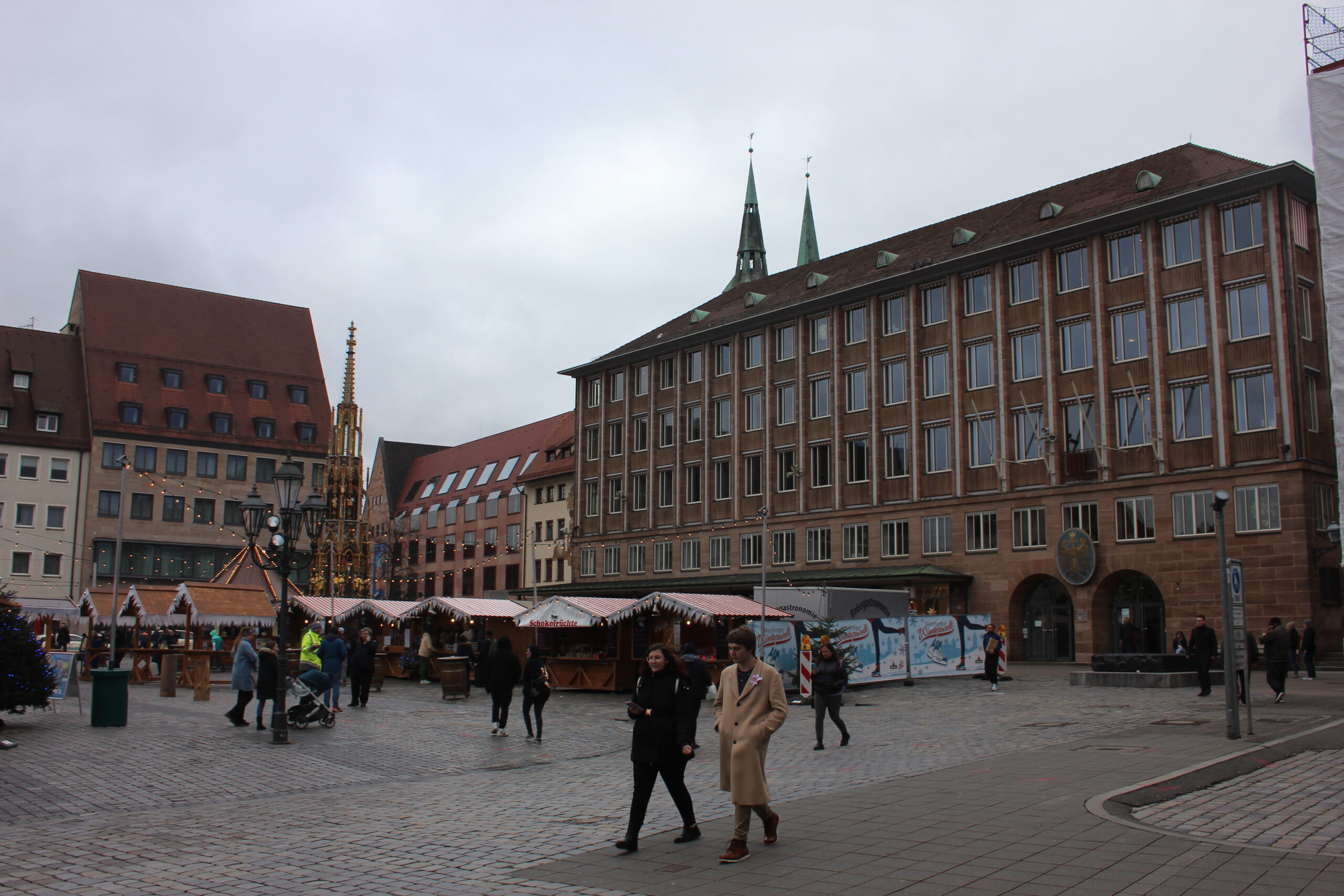Snapshots from life in modern Germany
I haven’t written so much about Germany, even though I have been living here for the past three years, for several reasons. The main one is that I never expected this country to be my permanent home, but just a place in which I accidentally and temporarily ended up for a while before moving to other pastures. But now after three years, I’m starting to question whether I will ever leave…
Germany is changing. Once known as the land of efficiency, now it has been plagued by several economic and social problems. The economy is in recession, and inflation has been steadily growing. The energy crisis that started with the sanctions against Russian gas is ongoing, and damaged Germany more than Russia.
Farmers have been protesting, as they have in other European countries, against proposed changes in legislation that single them out as “un-green” and cut their subsidies for fuel, among other things.
Deutsche Bahn, its national rail service, has been having more and more train delays due to construction or strikes. Believe it or not, I experienced less train delays in a recent trip to Italy than in my recent weeks in Germany (but, to be fair, that was a period of heavy strikes).
Population changes
German population is changing, too. Migration levels remain high, while the fertility rate has stationed at around 1.46 per woman. For a few years, Germany held the title of the European country with the lowest fertility rate, but now in 2024 that distinction is going to Spain, with 1.19. The caliente Spanish are having less babies (and, presumably, less sex, or perhaps just more abortions) than the kalt Germans.
(Parenthesis: part of the reason could be that Spain went from übercatholic to überfeminist in basically just one generation. It is interesting that the countries that experienced the most drastic reduction in birth rates where former Catholic ones: Ireland, Italy, France and Canada’s Quebec.)
Demographic changes bring cultural changes.
Advenstkalender are traditional German calendars containing chocolates or gifts inside that are marketed to children (and, sometimes, adults) in the period of Advent ending in Christmas. But, some time ago, in a supermarket, I noticed a curious thing: an “Adventskalender” for Ramadan! I doubt this is traditional in Muslim countries. It’s probably Germany trying to square the high number of immigrants with its own traditions.
However, despite the large number of Arabs and Turks, the most recent migrants are all Ukrainian. In some neighbourhoods, you hear more Russian than German in the streets. And yes, it’s Russian, not Ukrainian — until very recently, most Ukrainians spoke only Russian, although that is probably changing now. Germany took in over a million Ukrainian refugees, perhaps even two or three million. They will probably never return to the Ukraine. Germany is going to become more slavic. (There was already a relatively high number of Poles).
A world without people
Preparing us for a world without people, or at least much fewer people, automation is more and more present in Germany. I think I already mentioned that many supermarkets and shops are moving to automatic checkout, and also that many commerces including bars are starting to refuse cash — you can only pay with your credit card, phone or similar digital appliance — and soon, I suppose, also with a microchip inserted under your skin or in your brain.
But a recent episode in a visit to Nuremberg illustrates de dangers of living in a world where everything is automatic and you have to deal with machines instead of humans.
Now, first of all I must say that Nuremberg is a very charming city. Not too big and not too small, plus it also has at least two wonderful medieval churches. Saint Sebald in particular is very interesting. A volunteer working as guide at the church, a retired architect, explained to us that Nuremberg was a very important town in medieval times and the stopping point for many pilgrims going south. (Too bad both churches have become protestant since the Reform). Also, the Albrecht Dürer house and museum is worth a visit, as Dürer is the most famous artist from Nuremberg.
But anyway, what happened was that I made a reservation online for a night at a hotel. The hotel, called “Hotel Continental”, promised old-world charm, elegant rooms and a convenient central location. Only that, except for the central location, it all was a lie.
The hotel didn’t have a reception. You had to type in a code in the door outside, then, once inside, there was another machine where you typed in your reservation code. Once verified, this printed out a new code that you could use to open the door of your room.
We had reserved and paid for two rooms — I was in Nuremberg with a friend — but the machine, for some reason, only printed out one door code. As I said, there was no reception and, at a phone number listed “for emergencies”, no one answered. My friend was able to get into her room — no old-world charm, but a small single bed, dirty carpets and no other furniture but a small bedside table. The bathroom was located outside, in the corridor. Not that great.
As the original reservation was no longer recognized by the system, in the end I had to purchase a new room from the machine. So far, so good? Wrong. As I went to the door of my newly purchased room, the code didn’t work! No matter how many times I tried, the door would not open. I checked and double-checked, tried it in different ways (and even in different doors) but there was no way to get in. Later, reading reviews of the hotel, I found out it was a not uncommon problem, and some guests had to sleep in the corridor.
Since there was no one to call and by that time it was too late to find another hotel, I ended up just walking along the empty corridors and up and down the stairs for hours, like a ghost in the “Shining” movie, in search of a living soul. I didn’t see anyone, employee or guest.
The hotel had four floors and what was interesting was that each floor was different — the lower, and, I suppose, cheaper one, had corridors wish stained carpets, ugly paintings on the walls, some room doors missing their numbers, and just a single small armchair on each end. But as you went up, the decoration improved.
The second floor already looked a bit better: only one door had a missing number and the carpets seemed less dirty. The third floor had an even cleaner carpet and more comfortable-looking armchairs, and the fourth and last floor had much more elegant colours, wider doors with no missing numbers and not just armchairs on each end of the corridor but even a vase with flowers sitting on an elegant table. I assume it was not just the corridors, but the quality (and the price) of the rooms also increased as you went up.
It reminded me of a short story by Dino Buzatti called “Seven Floors”, about a hospital with a similar configuration.
Eventually I found an unlocked deposit room downstairs where they had a small foldable bed, and there’s where I ended up sleeping. And undisturbed, too, for eight straight hours. I suppose someone must clean the hotel at some point, but, even during the next morning, I didn’t see a single employee at that ghostly and ghastly hotel — not at the reception, not cleaning the rooms, not guarding the doors. Later I tried to call asking for a refund, but no one answered. No one answered the dozens of emails I sent either.
If you ever visit Nürnberg, don’t stay at the “Hotel Continental”.
A call from above
German children can be enchanting and friendly (older German people, a bit less).
Just a few days ago, I was walking down the street when I heard the voice of a little girl calling from above. “Hallo, hallo!” She was standing in an elevated courtyard at the school next to the church, looking down. She and other children were playing in the recess from school. I thought they would ask me about a ball or something else that had fallen down, but no. She said, “Hallo, wie heißt du?” (What’s your name). I answered, “Thomas”. “Schöne name”, (nice name) she said. The boy next to her mentioned “Thomas Müller”, a football player. Then she waved goodbye and so did I.
And that would be it, but a little later I was returning and crossed the corner of the same street, and I wondered if the girl was still there and if she would still see me from so far away. And indeed I heard her calling, and I turned and saw her waving. “Hallo, Thomas!” she called.
What was that? A vision? An angel? Or a real child?
Somehow it reminded me of the end of Fellini’s “La Dolce Vita”, where Marcelo Mastroianni is on the beach and the young girl representing innocence waves at him, but he can’t hear what she says, and eventually turns away, in shame.
Or perhaps I’ve been too long in Germany and I’m just seeing things.

